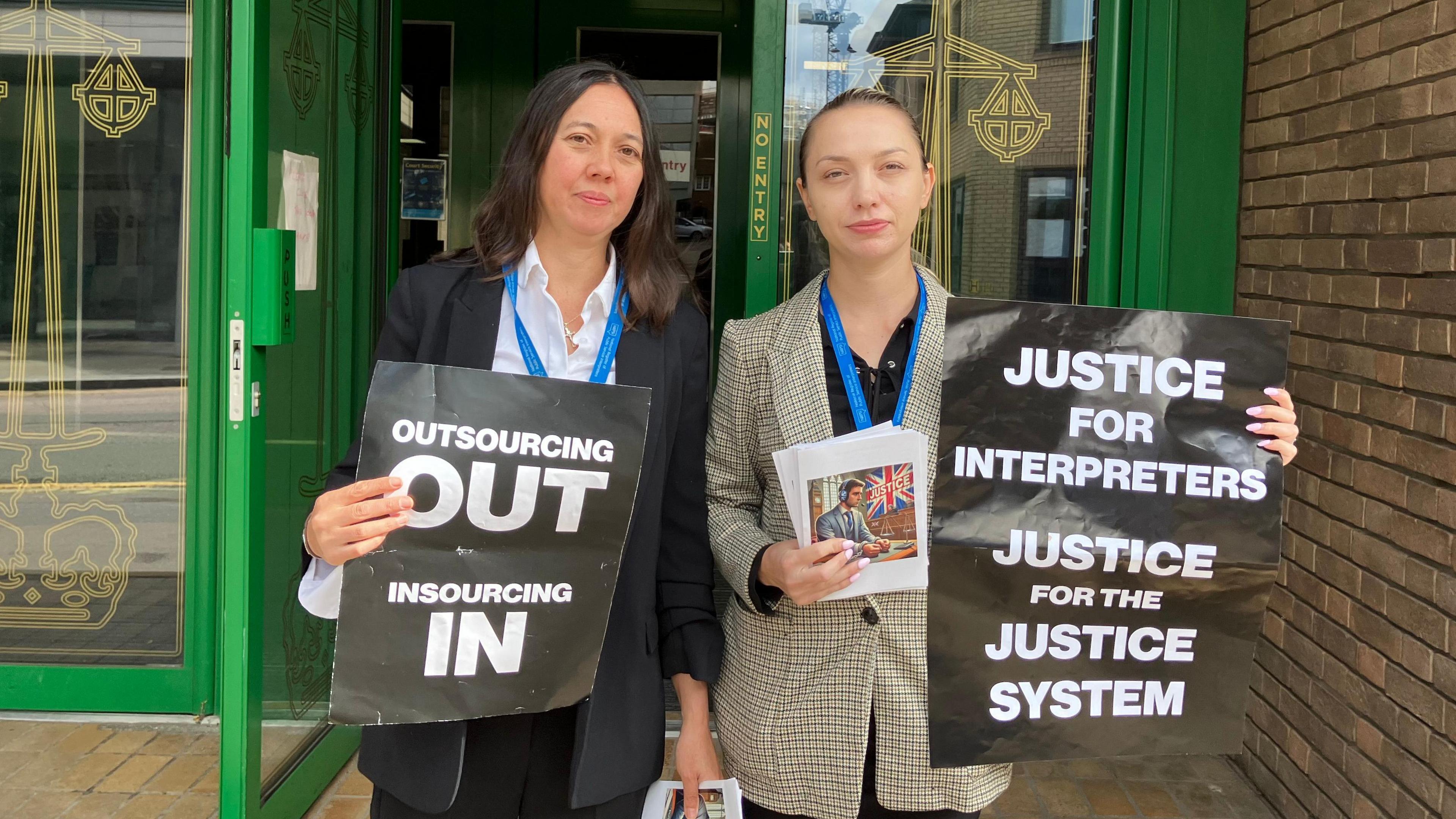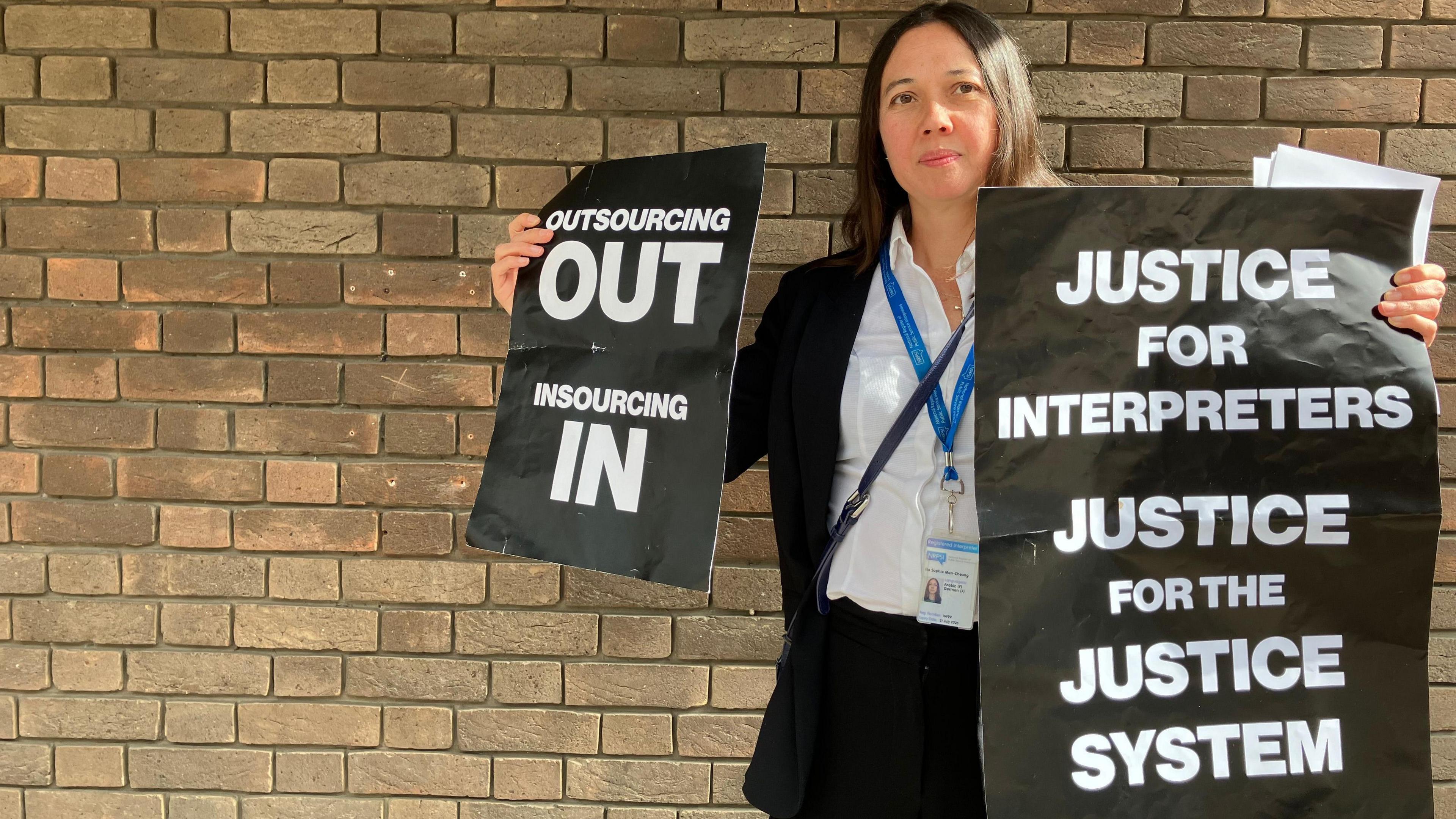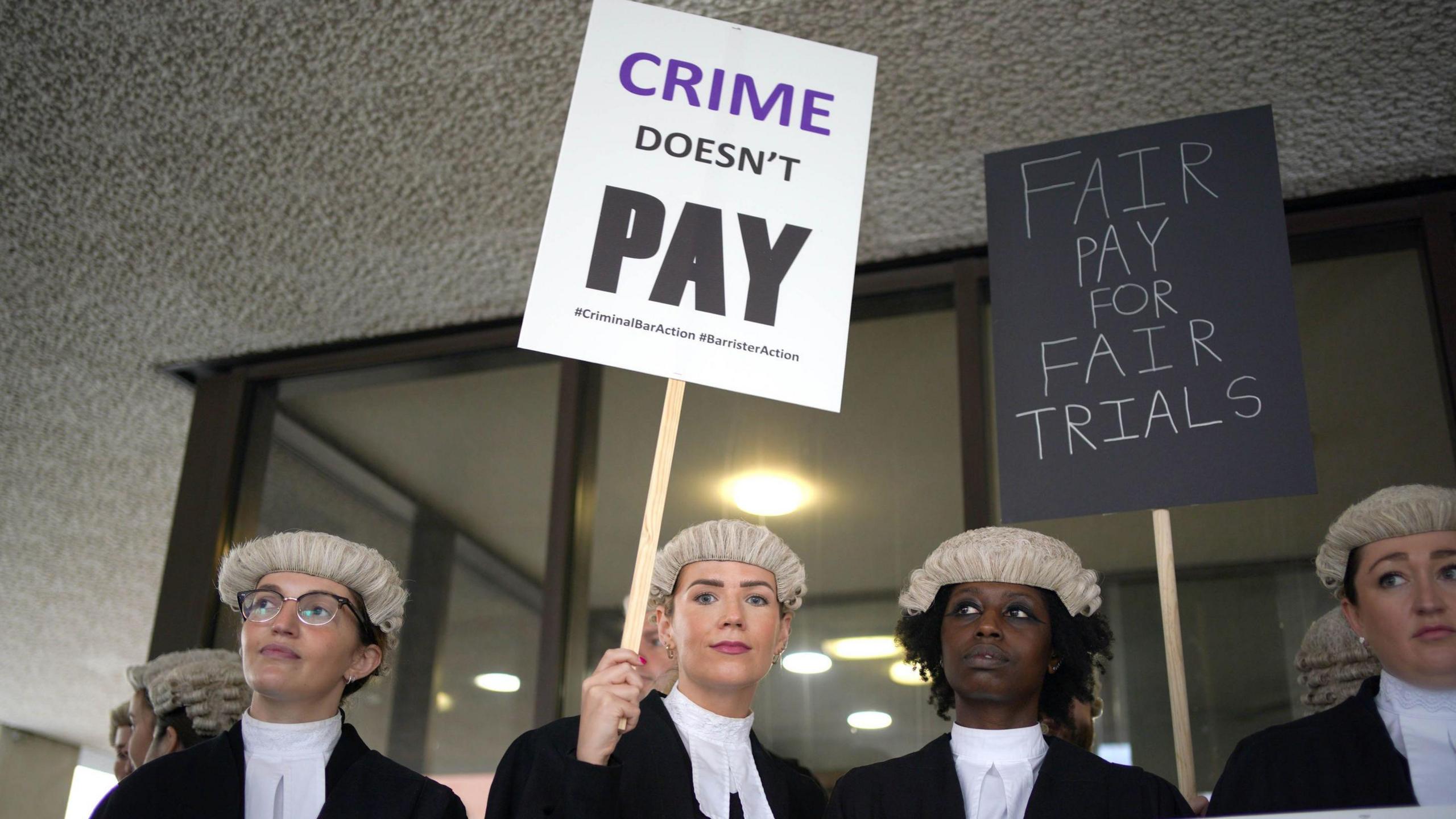Court interpreters protest over pay and conditions

Protests continued outside Chelmsford Crown Court on Wednesday
- Published
Court interpreters and translators have withdrawn services at a court in a protest over freelance working conditions, with one claiming her peers live "pretty much on the poverty line".
Interpreters outside Chelmsford Crown Court say the introduction of a booking app by contractor thebigword (TBW) has led to problems with invoicing and payments.
The services - which help witnesses and defendants understand court procedures and language - were outsourced by the Ministry of Justice (MoJ) in 2012.
A spokesperson for His Majesty’s Courts and Tribunals Service said it was aware of walkouts "at a small number of criminal courts" but measures were in place to minimise disruption.
Sophie, who preferred not to give her surname, began work as an interpreter in 2013.
She said colleagues had endured late cancellations, travel cost issues, and in some cases, one hour's pay for a full-day booking.

Sophie, who has been an interpreter for over a decade, says the system is being "hugely failed"
The decision to halt their services comes as the UK faces a court backlog of over 60,000 cases.
TBW was handed the £15m contract to provide translation services to courts by the government in 2016.
The company provides telephone and face-to-face interpreting and translation services to the MoJ and other government departments, as well as the NHS and the emergency services.
Interpreters prioritise speed and spoken language live in court, whereas translators deal with the written word.
Sophie said: "You can effectively go somewhere and you can be cancelled off and adjourned.. and end up completely out of pocket."
Cristina, who has been an interpreter since 2018, also said she had found issues with the booking app.
"The jobs have disappeared when we went to invoice them - or part of the payment that we agreed on is not appearing on the portal anymore - so we don't get the pay for our services," she said.
She also said the courts were frequently told that interpreters were not available, when they were in fact waiting for work, "unable to see the jobs or unhappy with their pay".
'Out of pocket'
The action taken by interpreters is not classed as a strike as the workers are not employed by TBW, but instead work on a freelance basis.
Their case has been taken up by the law firm Leigh Day, which is pushing to grant them full rights under employment law, external, including holiday pay and the minimum wage.
Gabriel Morrison, a senior associate solicitor in the employment team, said: “Some of the experiences reported by interpreters, which have now resulted in the temporary withdrawal of their services, demonstrate the inequity between thebigword and their interpreter workforce."
He added that when the company's system fails, it is "the interpreters who are left out of pocket as a result of those failings".
"The control over the interpreters and integration into thebigword’s business is why we consider that they are workers, rather than independent contractors," he said.
A spokesman for TBW said the company was aware of planned protests, adding: "We have a great partnership with our interpreters, who overwhelmingly enjoy the working arrangements we have with them.
"There are considerable benefits which they appreciate and understand.
"We have an open dialogue with our people about any issues raised. Our contracts are reviewed by leading employment lawyers who confirm they are entirely appropriate for self-employed freelancers."
Get in touch
Do you have a story suggestion for Essex?
Follow Essex news on BBC Sounds, Facebook, external, Instagram, external and X, external.
Related topics
Related stories
- Published24 May 2024

- Published9 February 2023

- Published14 January 2019
